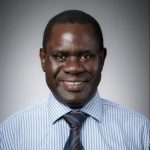Navigation

- This event has passed.
Webinar: Teaching and Training in an Online Environment
Tue, Dec 15, 2020 @ 6:00 PM - 7:30 PM
FreeWhen the pandemic forced the pause of face-to-face lectures and labs in March of 2020, academic institutions had to swiftly adjust to online teaching. Even though online teaching platforms existed and certain courses were already delivered online, no one was prepared for a full-out switch of the teaching methodology. Last minute solutions, arguably mostly effective, were implemented for the successful completion of the Winter 2020 semester. The ensuing summer teaching hiatus gave instructors the opportunity to better structure lectures and labs for an online environment.
A group of McMaster Engineering professors will share their experiences and tools used for delivering content and helping students throughout the globe learn. A range of techniques, applicable to both academia and industrial training will be presented. Examples include the LightBoard, Remote Labs, and Labs-in-a-box.
This is a free webinar, but RSVP is required. Please RSVP via EventBrite via this link: https://www.eventbrite.ca/e/webinar-teaching-and-training-in-an-online-environment-isa-hamilton-tickets-130632406043
Presenters:
 Michael Justason
Michael Justason
Program Chair, Civil Engineering Infrastructure Technology
W Booth School of Engineering Practice and Technology
Michael worked for Bermingham Foundation Solutions for 18-years prior to his current position at McMaster. His roles at Bermingham included: Product Manager; Engineering Manager; and Business Development Manager. His main areas of expertise include: pile driving and deep foundations; foundation load testing (including Bermingham’s patented ‘Statnamic’ Technology); as well as the use of ‘Energy Piles’ for heating and cooling buildings and bridges. Michael is active on committees of many industry organizations such as the ASTM, ASCE Geo-Institute, and the Deep Foundations Institute.
 Dr. Mostafa Soliman
Dr. Mostafa Soliman
Assistant Professor
W Booth School of Engineering Practice and Technology
 Dr. Tom Wanyama
Dr. Tom Wanyama
Program Chair, Automation Engineering Technology
W Booth School of Engineering Practice and Technology
Dr. Tom Wanyama is an assistant professor in the School of Engineering Practice and Technology (SEPT) at McMaster University which he joined in May 2012. He has over 20 years of university teaching experience; teaching a wide range of undergraduate and post graduate courses, including: digital electronics and systems, electricity and magnetism, power electronics, power systems, electrical machines, microwave engineering, data communication and computer networks, software architecture, software design process and metrics, industrial networks and controllers, artificial intelligence and decision theory, and software requirements and specification. Before joining SEPT, Dr. Wanyama led the team that developed, built and maintained packaging equipment for DuPont Canada at its Calgary distribution centre. At DuPont, he carried out simultaneous design of mechanical, electronic and software systems of packaging equipment (Nanomates, Fleximates, automated scales for the Form Fill and Seal (FFS) machines, and Tablemates). Moreover, he designed industrial Control Area Networks (CAN) based on Ethernet IP, CsCAN, and Profinet. Furthermore, Dr. Wanyama has wide experience in design and installation of electrical systems in commercial and industrial buildings, and he continues to consult in the area of packaging systems automation. His research work falls in three areas, namely: system composition and integration; use of artificial intelligence in systems control, monitoring and maintenance; and development computer based tools for personnel training.
